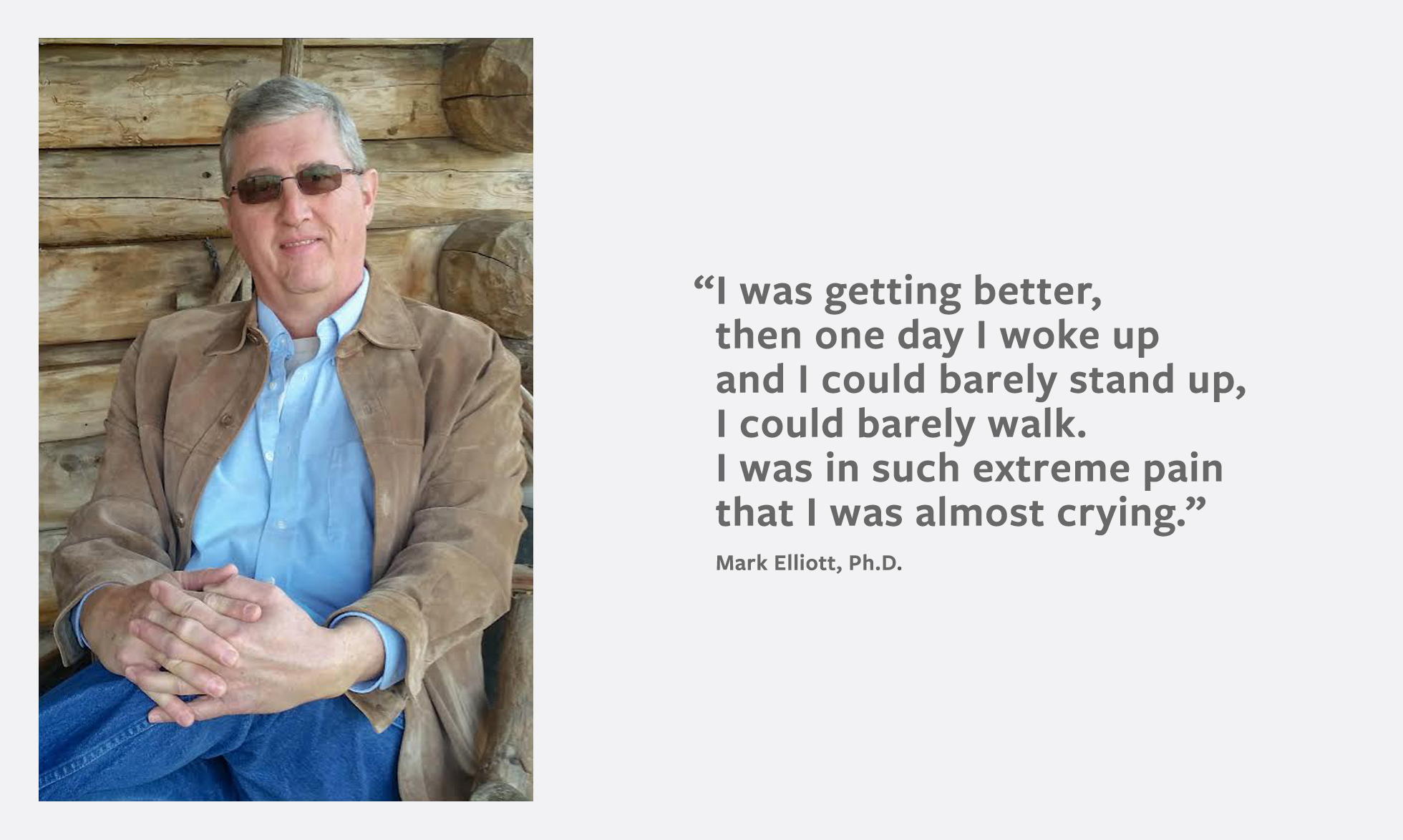
Last updated on June 19th, 2024 at 12:22 pm
Mark Elliott, Ph.D., is a 66-year-old associate professor in the department of biochemistry and molecular medicine at George Washington University who has been struggling with long COVID for the past year. Long COVID occurs when someone infected with COVID-19 has symptoms that last for months or years. There can be a wide range of symptoms, which can include fatigue, brain fog, and respiratory issues.
Though Mark has been able to manage some of his symptoms by working with his health care providers, treatments for other ailments―particularly brain fog―remain elusive. Mark chatted with MedlinePlus magazine about his experience.
When did you first test positive for COVID-19?
I actually never tested positive. I was exposed to COVID-19 in August 2021 and started having minor symptoms shortly after that—just coughing and respiratory issues for about a week. Within five days, my wife got it, and her symptoms were worse. We isolated and stayed home, but even though we took tests, neither of us tested positive. So many people with long COVID never actually have a positive test. I had been vaccinated and boosted before I got sick.
It sounds like your COVID-19 experience was fairly mild. When did you first start to feel like something was off?
About four weeks after getting sick. I was getting better, then one day I woke up and I could barely stand up; I could barely walk. I was in such extreme pain that I was almost crying. But if I walked more than 50 yards, it started to loosen up. So I’d go to class, I’d give my lecture, and I’d be completely capable of doing that. Within two to three hours, though, the pain would come back, and I would be a complete basket case.
In the year before he died at 93, my dad had severe mobility issues. I suddenly felt like my dad, and I kept thinking, “Am I really that old? I should still be able to move, should still be able to cut the yard.”
When did you decide to seek care?
I called my primary care physician after three days of this pain. He initially told me to do Tai Chi. Which is cool, but if I can’t get out of a chair and walk, that’s not going to work. After two weeks, I called my primary care doctor back, and he started me on a 10-day course of steroids. The second they gave me prednisone, everything went back to normal. But it was only a 10-day course, and once I was done with the steroids, everything hurt again, and I couldn’t move.
It took another five weeks to get an appointment with a rheumatologist. I was diagnosed with polymyalgia rheumatica, which is a type of arthritis. I have no history of that disease or any kind of autoimmune disease in my family, so I thought it was weird. My wife went into NIH’s PubMed and found a number of articles that show respiratory viruses can trigger reactive arthritis, and there was a case study that suggested COVID-19 could also do that.
How different is your current state compared to your prior health?
I’ve had two knee replacements and one shoulder replacement from years of football and basketball, but otherwise, I had no health issues.
Now I’m taking a few drugs to treat my long COVID symptoms. I have to keep an eye on the side effects, but they are helping dramatically. As long as I’m on my regimen of drugs, my pain management and physical lifestyle are just fine. But it took months to get here.
Where I’m struggling is with my brain fog, which started with the COVID-19 and never really went away. I’ll be in the middle of a class giving a lecture I’ve given many times, and I’ll just get lost right there in the middle of a sentence. I finally had to stop class because I was staggering and stammering. I said, “Look, kids, this is what’s going on.” Remembering the simplest of things can be hard—like, right now, there’s a complete mental block on what my next-door neighbor’s wife’s name is.
How have you learned to cope with that?
I’ve appreciated my students’ patience and their willingness to help play the brain-fog game. I’ll be in the middle of a sentence, and I’ll forget where I was going. I’ll look at the class, and they’ll remind me, and then we go on together. It’s been a nice team-building effort on their part.
